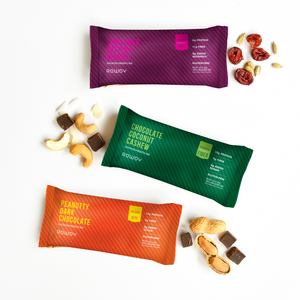In most cases, CKD is managed through treatments like medication, dialysis, or a kidney transplant. However, there are other lifestyle changes patients can make that may improve kidney function. One of these changes that your physician may recommend is following a kidney-friendly diet.
Although it’s not possible to treat CKD using diet alone, embarking on a kidney-friendly diet can potentially slow the progression of the disease and prevent other health issues. If you’re not sure where to start, here are some simple diet changes you can make to improve your kidney health and, as a result, overall wellness.
What Is a Renal Diet?
A kidney-friendly diet is also known as a renal diet. This is a way of eating that focuses on improving the health and function of your kidneys. A renal diet often goes hand-in-hand with heart-healthy or diabetic diets, as CKD often occurs in conjunction with these conditions.
By consuming nutrients that are focused on improving these health conditions, you can improve how your kidneys function and prevent further disease from happening.
The goals of a renal diet are twofold: 1) consume foods that promote good kidney health, and 2) avoid foods that are bad for your kidneys.
What to Eat to Promote Good Kidney Health
The three best nutrients to focus on if you want to improve kidney health are vitamins, antioxidants, and fiber. Here are some of the most commonly recommended foods for people looking to follow a renal diet:
- Arugula
- Bell peppers
- Berries
- Cabbage
- Cauliflower
- Egg whites
- Fish
- Macadamia nuts
- Onions
- Pineapple
- Radishes
- Red grapes
- Skinless chicken
- Turnips
What to Avoid if You Have Chronic Kidney Disease
On the contrary, there are three nutrients that you should avoid if you want to promote good kidney health: sodium, phosphorus, and potassium.
Sodium
If you have a lot of sodium in your system, your body may retain water. By holding excess water, you’re forcing your heart and kidneys to work harder to filter and excrete that fluid. To keep your kidneys from working overtime, pay attention to food labels and avoid adding extra salt when cooking your food. Look for low- or no-sodium options if possible.
Phosphorus
The further your CKD progresses, the more difficult it becomes for the kidneys to filter out phosphorus. If this mineral builds up in your blood, it can potentially lead to issues like bone disease. Because dairy products are high in phosphorus, you should avoid dairy whenever possible.
Potassium
When your kidneys aren’t functioning properly, potassium can very easily build up in your blood. Take note of which fruits and vegetables are high in potassium and consume them in moderation.
To give some examples, here are a few food choices that are high in these three nutrients. Many physicians will recommend that you avoid these if you are trying to follow a renal diet:
- Apricots
- Avocados
- Bananas
- Brown rice
- Canned goods
- Dairy products
- Potatoes
- Processed meats
- Salty snacks, like crackers
- Tomatoes
- Whole wheat bread
Talk to Your Physician Before Making Any Major Changes
It’s important to note that every chronic kidney disease patient is unique. These guidelines are very general and may or may not apply to your situation, depending on your age, lifestyle, and progression of the disease. The presence of other health conditions may also play a role in what kind of diet is best for you.
For this reason, it’s important to work closely with your doctor before making any big changes to your diet. Your physician knows your history best and, as a result, will be able to recommend the diet that best suits your health needs.

